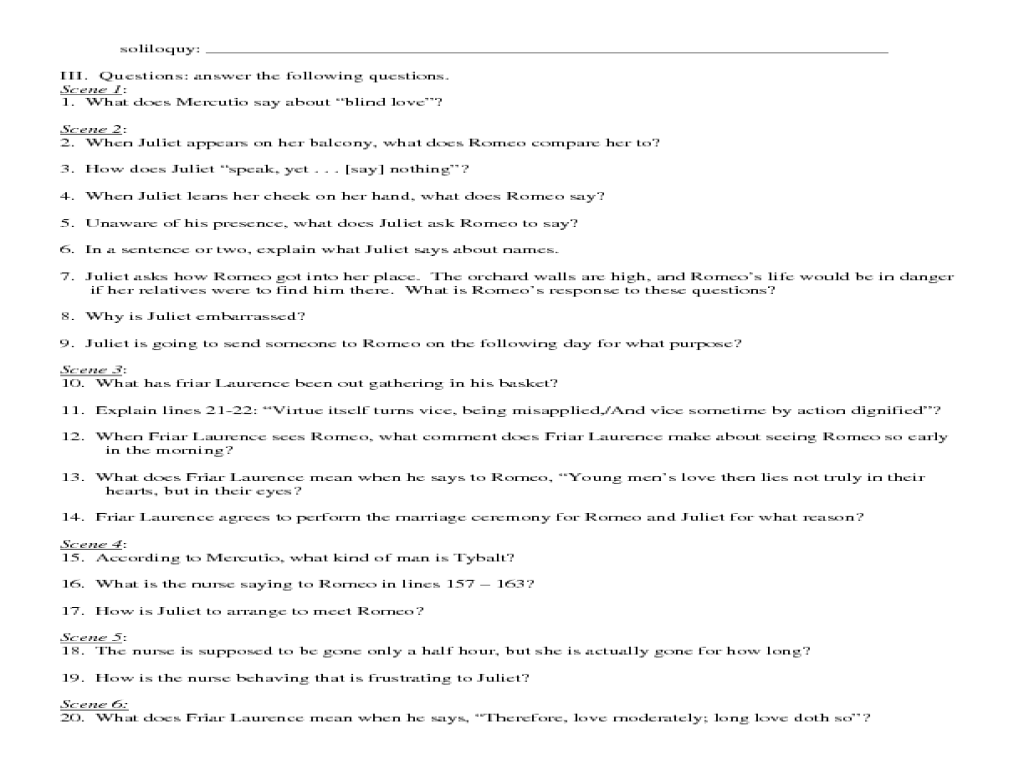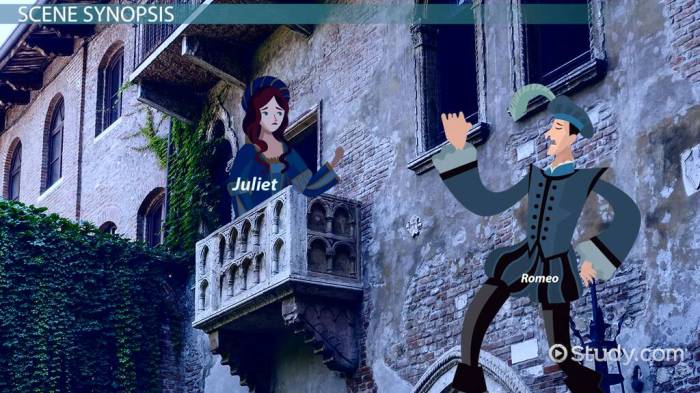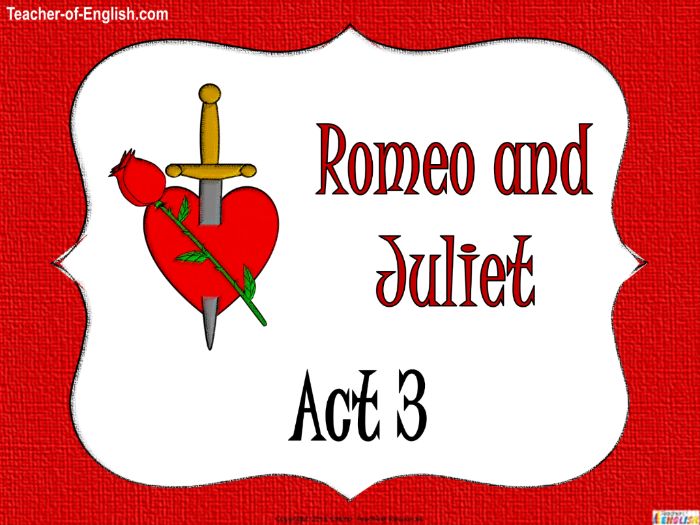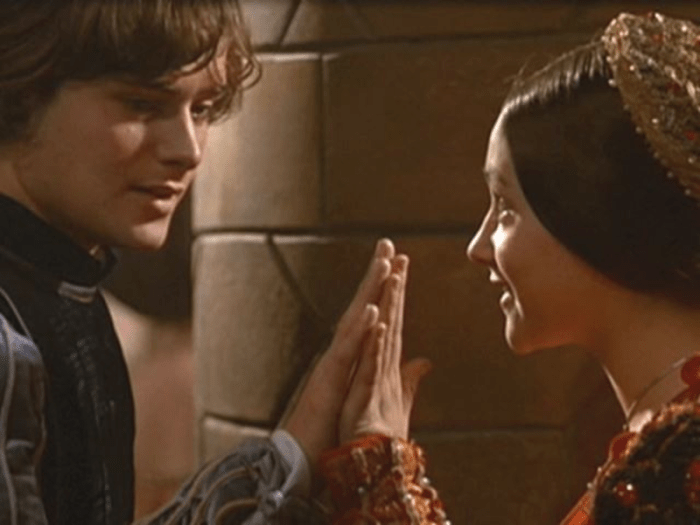As Romeo and Juliet Act 1 Reading and Study Guide takes center stage, this opening passage beckons readers into a world crafted with meticulous attention to detail, ensuring a reading experience that is both absorbing and distinctly original.
This guide provides a comprehensive analysis of the play’s first act, offering a detailed exploration of its characters, themes, and historical context. By engaging with this guide, students and readers alike will gain a deeper understanding of the play’s intricacies, unlocking its timeless relevance and enduring appeal.
Romeo and Juliet Act 1 Reading and Study Guide

William Shakespeare’s Romeo and Julietis a tragic love story set in Verona, Italy. Act 1 introduces the main characters and establishes the conflict that will drive the plot.
This reading and study guide provides a scene-by-scene analysis, character analysis, and discussion of themes and motifs. It also includes study guide questions to help students understand the play.
Scene-by-Scene Analysis

Scene 1
The play opens with a prologue that sets the scene and introduces the feud between the Montagues and Capulets.
In Scene 1, we meet Romeo Montague and Benvolio Montague. Romeo is lovesick over Rosaline, but Benvolio encourages him to attend a party at the Capulet’s house.
Scene 2
At the party, Romeo meets Juliet Capulet. They fall in love at first sight, despite their families’ feud.
Scene 3
The Nurse, Juliet’s confidante, helps Romeo and Juliet exchange vows of love.
Scene 4
Romeo and Juliet meet on Juliet’s balcony. They declare their love and plan to marry in secret.
Scene 5
Tybalt, Juliet’s cousin, challenges Romeo to a duel. Romeo refuses to fight, but Mercutio, Romeo’s friend, steps in and is killed by Tybalt.
Character Analysis

Romeo Montague
Romeo is a young, passionate, and impulsive man. He is deeply in love with Juliet, but his family’s feud with the Capulets complicates their relationship.
Juliet Capulet
Juliet is a young, beautiful, and intelligent woman. She is deeply in love with Romeo, but she is also aware of the dangers of their relationship.
Tybalt Capulet
Tybalt is Juliet’s cousin. He is a hot-headed and violent man who is fiercely loyal to his family.
Mercutio
Mercutio is Romeo’s friend. He is a witty and sarcastic man who is always ready for a good time.
Themes and Motifs

Love
Love is a central theme in Romeo and Juliet. The play explores different types of love, including romantic love, familial love, and platonic love.
Fate
Fate plays a significant role in Romeo and Juliet. The characters’ actions are often determined by fate, and their choices have far-reaching consequences.
Violence
Violence is a recurring motif in Romeo and Juliet. The play is filled with violence, both physical and emotional.
Language, Romeo and juliet act 1 reading and study guide
Shakespeare’s use of language in Romeo and Julietis rich and complex. The play is full of beautiful poetry and imagery.
Common Queries: Romeo And Juliet Act 1 Reading And Study Guide
What is the significance of the balcony scene in Act 1?
The balcony scene is a pivotal moment in the play, as it marks the first time Romeo and Juliet meet and fall in love. This scene establishes the intense and passionate nature of their relationship, which sets the stage for the tragic events that follow.
How does the character of Tybalt contribute to the conflict in the play?
Tybalt is a hot-headed and impulsive character who represents the violent and feud-driven nature of Verona society. His hatred for the Montagues and his desire for revenge contribute to the escalation of the conflict between the two families.
What is the role of fate in Romeo and Juliet?
Fate plays a significant role in the play, as it seems to conspire against the lovers at every turn. The characters’ actions and decisions are often influenced by external forces beyond their control, leading to a sense of inevitability and tragedy.